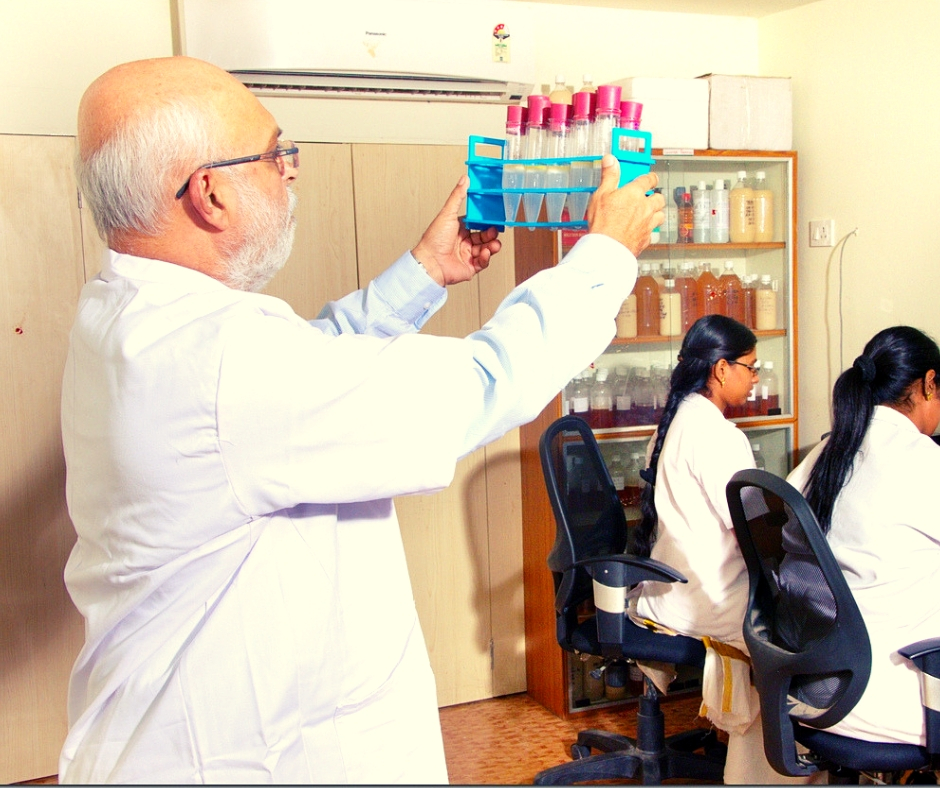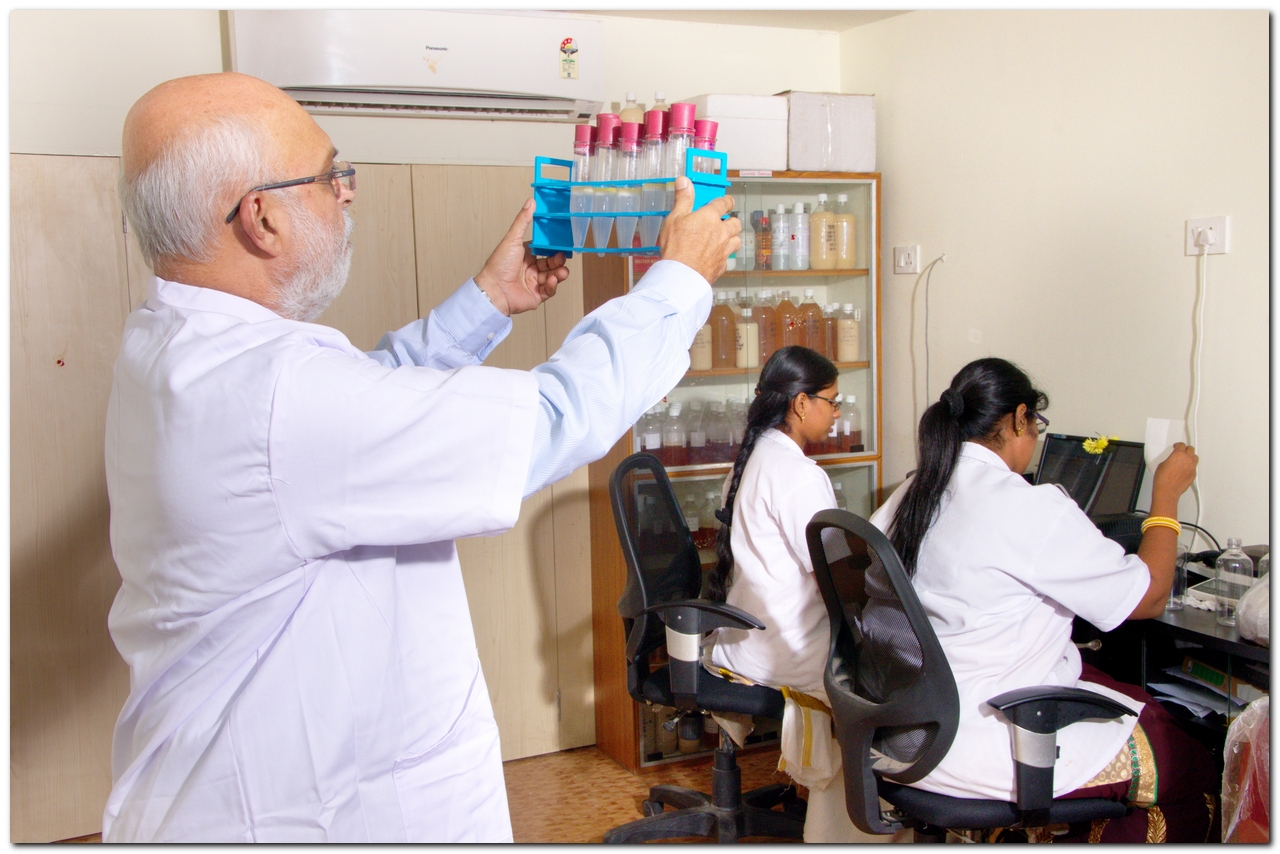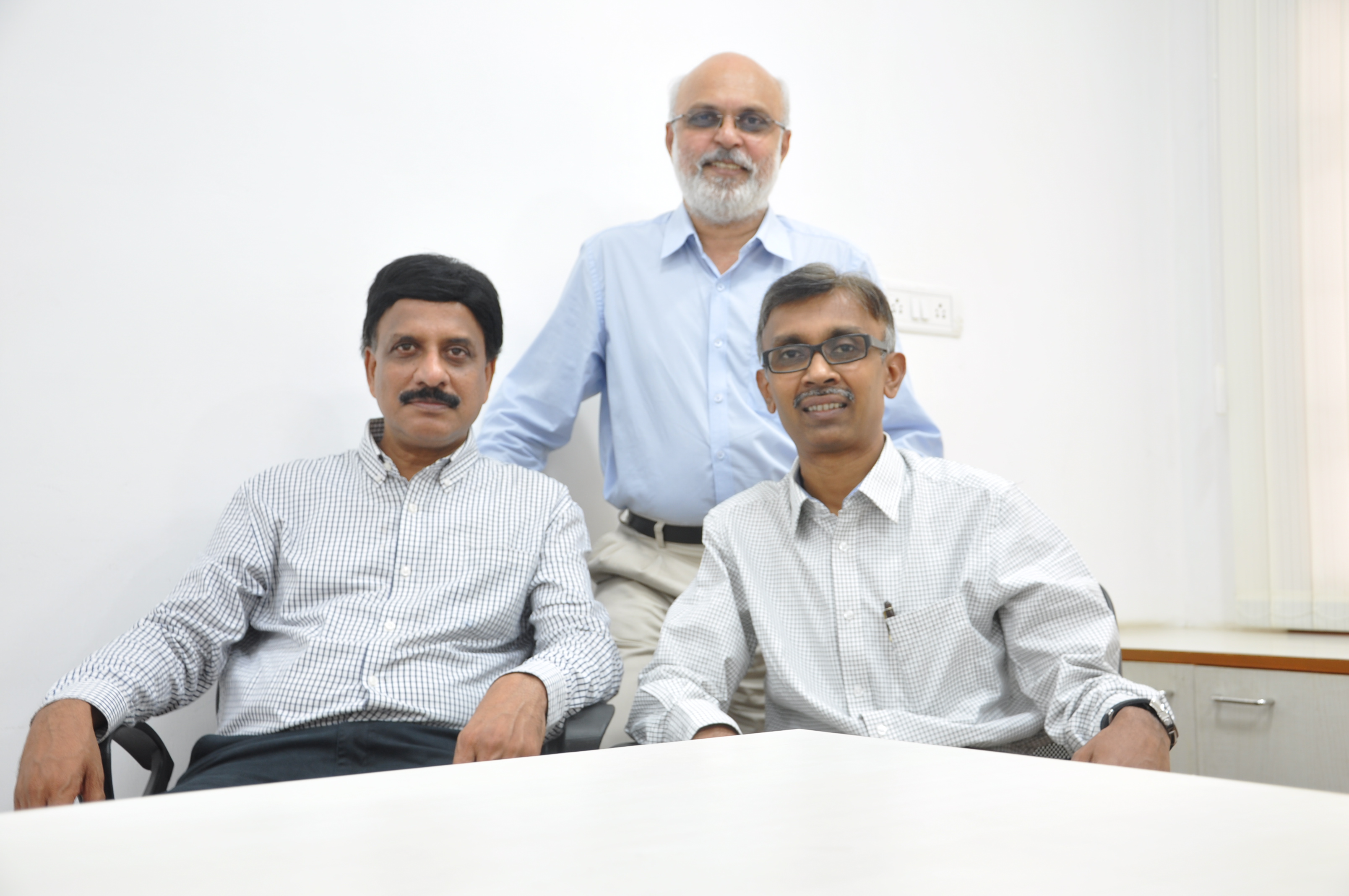Natural & Non-Toxic: Chennai Startup’s Army of Microbes Cleans & Saves Water!
From textiles to paper, these microbes can do useful jobs in many industries. But the best part is that this method is green, economical and totally chemical-free!

Globally, it is the power-generating industry which leads the way in water consumption, followed by the textile, pulp and paper, and leather industries.
Not only do they consume a lot of water, but also release toxic effluents, thereby causing pollution.
Today, there is increasing pressure on these industries to adopt environment-friendly and sustainable methods to manufacture their products.
If you take the textile industry, the owner of a company does not want to compromise on the results —whether it’s the fastness of the fabric he/she makes or cost of production. Additionally, he/she also wants to lower the consumption of water and reduce pollution.
In the past, manufacturers of enzyme and biosurfactants have sought to address these concerns, but despite the solutions they present, some key challenges remain unaddressed, particularly the inability to manage the cost of production.
That’s where Chennai-based startup Proklean Technologies come into the picture.
Proklean is in the business of researching, developing, manufacturing and marketing non-toxic, biodegradable formulations which can replace chemical surfactants and sequestering agents.
“We have come up with a very innovative platform for developing products where we can offer replacements for chemical auxiliaries like chemical surfactants and sequestering agents used by the textile and leather processing industries today. Our products are both non-toxic, biodegradable, but also offer better economic results than conventional chemicals used today,” says Dr Sivaram Pillai, a biochemist and one of three co-founders of Proklean Technologies, speaking to The Better India.

Dr Pillai had founded the startup in 2012, alongside his friend B Chandrasekhar, an engineer and former leather tanner, and Vishwadeep Kuila, an expert in sales, branding and marketing.
Dr Pillai and Chandrasekhar met each other in 2009 via a online interest group for probiotics, and started tinkering with the idea of using them in place of everyday products used in homes and waste water treatment.
Chandrasekhar also had a tannery in Chennai and that became the test bed for the products. The products yielded excellent results in the processing of the animal hides to create leather, and thes duo realised that they had struck gold!
The product they had formulated was delivering better results than existing chemicals used in the process while being completely green and also cost effective compared to chemicals.
“Our proprietary probiotic technology platform has two distinct components. One, we utilise a very unique consortium of probiotic microorganisms to carry out the fermentation process. Two, for the fermentation process, we add certain biodegradable ingredients which are modifiers and change the nature of fermentation. Put them together, and it results in the products we supply today to various industries,” informs Dr Pillai.
Thus far, the startup has ventured into leather processing and textile processing industry; its leather industry products are being sold by Stahl, a Germany-based MNC and global leader in leather chemicals.
“We are focussing on the textile processing industry in India, but we are also looking to enter the global market in places like Bangladesh, Philippines, Indonesia and China. We also have products for the paper and pulp industry, wastewater treatment and homecare cleaning products,” adds Dr Pillai.
Working with major clients in the textile processing industry and other medium-sized clients across major textile clusters in India, the startup has assisted them to not just reduce toxic effluents but also save water.
“The industry employs repeated wash cycles (removing impurities from the surface of fibres, yarns and fabrics). From the fibre stage to the time the final fabric is made there is a repeated process of washing with water. By the time one tonne of fabric is processed and finally delivered to the garment industry, it would undergo 10-15 wash cycles, typically utilising about 100 tonnes of water,” says Dr Pillai.
As Proklean products can work in a wide temperature and PH range, there is a reduction in the number of cycles which decreases water consumption by 15-20%, besides the time taken and energy,
The startup is also looking to get into the wastewater treatment industry and improve the performance of treatment plants.

Unlike other firms, they don’t construct wastewater treatment plants. Their expertise lies in the developments of products that help in the ET/ST (effluent treatment/sewage treatment) process.
Researching the industry, they identified three areas that other players in the sector either struggled with or presented impractical solutions.
The first was wastewater, which contains a high concentration of fat and oil.
“If you take the food processing or dairy industry, there is a lot of fat and oil in the effluents they generate. Even though they use mechanical means to remove the fat and oil, significant amounts end up in the treatment system. It’s imperative to note that biological treatment systems use microorganisms and the presence of high amounts of fat and oil impair them. We have come up with products (tested extensively) which pre-treat effluents before they enter the aeration tank,” says Dr Pillai.
The product they supply is a combination of live organisms as well as the biosurfactant which is produced during the fermentation process. The wastewater, containing high fat levels, is pre-treated with the product before it enters the aeration tank. The surfactant present in it emulsifies the oil and makes it into a soluble compound.
Thus, before the wastewater enters the aeration tank, it significantly reduces the chemical oxygen demand (COD) load. The live probiotic present also consumes fat.
“It’s essentially a combination of biosurfactant and fat eating microbes at work,” he explains.
The other concern is related to odour. Today, sewage and effluent treatment plants that are treating effluents with high amounts of volatile chemicals coming out of the pharmaceutical industry, for example, are doing the job to a level where it nearly meets the standards set by the pollution control boards, but unable to deal with the odour.
The biochemicals present in the formulation, neutralise volatile odour causing compounds, and the live microbes prevent the generation of odour producing compounds.

“We have been able to demonstrate that treatment with our formula can deal with the problem. The startup is also looking at effluent treatment plants that still have issues settling the suspended matter. Typically, in many of these industries, while in the last stages of wastewater treatment they find that in the clarifier tank, the suspended matter still isn’t entirely removed,” says Dr Pillai.
Thus far, Proklean has raised approximately Rs 17 crore in equity capital across three different rounds of funding from 2012 to 2017.
The investors are The Chennai Angels, Infuse Ventures and friends and family of the promoters. The company is now looking to raise fresh capital.
Also Read: This Crucial Innovation Removes Deadly Arsenic From Our Water For Just 60 Paise/Litre
With certain industries generating high amounts of effluents and consuming excessive volumes of water, what Proklean has managed to do is reduce both, but at the same time ensure their businesses aren’t unduly disturbed.
In some instances, the startup has even managed to improve their productivity.
Meanwhile, its foray into the wastewater management, using eco-friendly means, will also address concerns not yet resolved by conventional STPs.
These are the solutions we need.
(Edited by Gayatri Mishra)
Like this story? Or have something to share?
Write to us: [email protected]
Connect with us on Facebook and Twitter
If you found our stories insightful, informative, or even just enjoyable, we invite you to consider making a voluntary payment to support the work we do at The Better India. Your contribution helps us continue producing quality content that educates, inspires, and drives positive change.
Choose one of the payment options below for your contribution-
By paying for the stories you value, you directly contribute to sustaining our efforts focused on making a difference in the world. Together, let’s ensure that impactful stories continue to be told and shared, enriching lives and communities alike.
Thank you for your support. Here are some frequently asked questions you might find helpful to know why you are contributing?


This story made me
-
97
-
121
-
89
-
167













